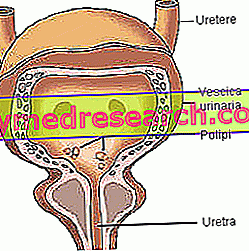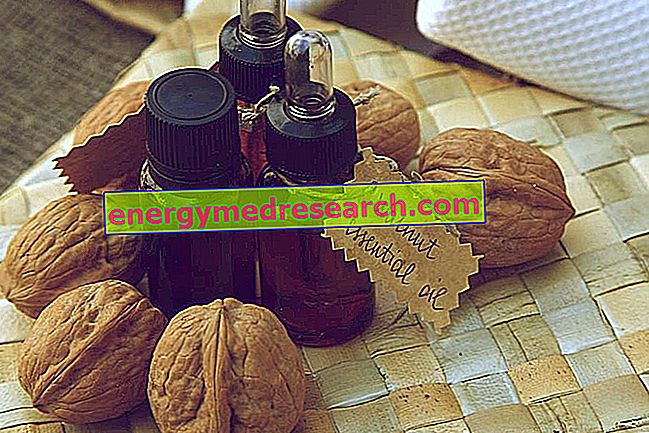Introduction
Etymology and discovery of probiotics
The concept of probiotic (from the Greek: "pro-bios" in favor of life) was born in 1908, when Nobel Prize winner Elie Metchnikoff put forward the hypothesis that the longevity of Bulgarian peasants was linked to the high consumption of fermented milk.
All about Probiotics
Probiotics: what are they? Probiotics and human health Probiotic foodsPrebioticsLactic and probiotic lesionsSimbioticsLibotic antibioticsIntestinal bacterial Probiotics: which ones to choose and how to use themProbiotics and DiarrheaIn 1965 Lilly and Stillwell used the term probiotics for the first time to describe "substances secreted by an organism, capable of stimulating the growth of another".
As science discovered the physiological and therapeutic role of probiotics, the definitions became increasingly elaborate and comprehensive.

Features
What are the requirements for a good probiotic?
In order to be called probiotic, a bacterium must have a certain number of specific characteristics and properties, which can be summarized in the following points:
- it must normally be present in our intestines;
- must resist the digestive action of gastric juice, intestinal enzymes and bile salts;
- must not give immune or otherwise harmful reactions;
- it must be able to adhere to intestinal cells and colonize them;
- it must have a beneficial effect on human health, thanks to the antagonism towards pathogenic microorganisms and the production of antimicrobial substances.
Since they are largely inactivated by the digestive processes, lactic ferments contained in commercial yoghurts, unless otherwise specified, cannot be considered to all effects of probiotics.
What are the bacteria normally present in the human intestine?
| RECOVERABLE BACTERIA IN THE FECI | ||
| Harmful (pathogens) | Pathogenic potentials | Benefits |
| P. Aeruginosa Proteus Proteus staphylococci Clostridia Veillonelle | Enterococci E. Coli Streptococci | Bifidobacteria Lactobacilli eubacteria |
Prebiotics and Symbiotics
Meaning of "prebiotics" and "symbiotic"
Two similar terms, but with different meanings, are prebiotics and symbiotic.
WARNING! Do not confuse the term "prebiotic" with "probiotic". They have totally different meanings.
Prebiotics
They are non-digestible oligosaccharides which, present in food or sold as supplements, positively influence the growth and activity of one or a limited number of beneficial bacteria present in the colon.
synbiotics
"Symbiotic" is the name of the association between probiotic and prebiotic agents within the same food or supplement; the symbiotic is a method of taking probiotics which guarantees its survival, while at the same time providing a specific energy substrate for the bacterial flora already present in the colon.
| lactobacilli | Bifidobacteria | Other microorganisms |
| L. acidophilus L. casei L. johnsonii L. reuteri L. rhamnosus L. salivarius L. plantarum L. crispatus | B. animalis B. brief B. infantis B. longum B. adolescentis B. lactis B. bifidum | E. faecium B. subtilis E. coli S. boulardii Cl. butyricum |
Microorganisms used in the production of probiotic products (Bottazzi, V. Milk probiotic functional fermented. Scientific editions, 2004 - page 53).
Some of which have become registered trademarks:
- L.casei (Fyos, Nutricia)
- L.acidophilus1 (LC1, Nestlè)
- L.casei (BIO, Danone)
- L.casei Immunitas (Actimel, Danone)
- L.casei Shirota (Yakult)
Video
Video lecture on probiotics
Watch the video
X Watch the video on youtubeProbiotics and Health

Their use has been proposed, often with encouraging results, in the treatment of various conditions, pathological or not.
Although much remains to be clarified, we know that the positive effect on human health depends, in the first instance, on the inhibitory effect on the proliferation of pathogens in the intestine. This activity is carried out at various levels, which can be summarized as follows:
- Competition for energy substrates and for sites of adhesion to intestinal walls
- Decrease of fecal pH, with acidification of intestinal contents
- Production of nutrient molecules for intestinal cells and in general for the body.
Let's look at them in more detail.
Competition for energy substrates and for sites of adhesion to intestinal walls
The probiotic microorganisms compete with the harmful ones by subtracting their nourishment and occupying the possible sites of adhesion to the intestinal walls.
Decrease of fecal pH with acidification of intestinal contents
The fermentation carried out by probiotics, particularly those belonging to the genus Bifidobacterium, produces lactic acid and short chain carboxylic acids which, by virtue of their acidity, create favorable environmental conditions for the growth of symbionts, and hostile to the proliferation of pathogens . Consequently, we witness a decrease in hostile flora and its toxic metabolites which, when present in excessive concentrations, favor inflammation of the mucosa and alter its permeability, with negative repercussions on the health of the entire organism. These toxic metabolites include:
- Ammonia (toxic to the brain)
- Biogenic amines (highly toxic)
- Nitrosamine (hepato-carcinogenic)
- Secondary bile acids (powerful promoters of colon cancer).
Production of nutrient molecules for intestinal cells and in general for the short chain organism
Short chain fatty acids (especially butyric), are an excellent nourishment for the cells of the mucous membrane of the colon and contribute to improving trophism and efficacy; all this translates into better absorption of nutrients at the expense of toxic ones.
To the short chain fatty acids produced by probiotics are also attributed protective functions against inflammatory bowel diseases.
Butyric acid, in addition to reducing the proliferation of pathogens and having antiputrefactive properties, seems to have a preventive effect on the development of colon cancer.
The fermentation of the dietary fiber made by probiotics also originates some useful vitamins for the body, primarily B12 and vitamin K.
Second part "



